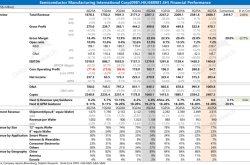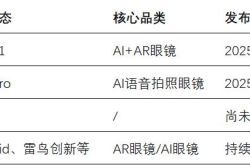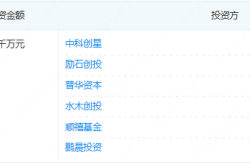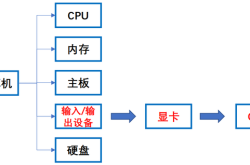What Lies Ahead for Avatr Under Its New Leadership?
![]() 09/25 2025
09/25 2025
![]() 482
482
Avatr's 4.0 Era
Body
Recently, a significant personnel shift has reverberated throughout the automotive industry. Zhu Huarong, Chairman of Changan Automobile and the steadfast supporter of Avatr since its inception, has unexpectedly stepped down from his role as Chairman of Avatr. The reins of this premium intelligent electric vehicle brand have been handed over to Wang Hui, a post-1980s executive who has largely remained out of the public eye in news related to the new energy sector.
This seamless transition of leadership has immediately sparked widespread discussion within the industry. Some view it as a strategic maneuver by Changan to facilitate Avatr's shift from framework-building (0 to 1) to scaling operations (1 to 100). Others are curious whether this new leader, a young rising star within the Changan system, can take on the responsibilities of high-end and global expansion left by Zhu Huarong. Many are also closely monitoring the tripartite cooperation between Changan, Huawei, and CATL, wondering if the leadership change will impact Avatr's technology implementation timeline.
Ultimately, this leadership transition is more than just a change within a single automaker; it serves as a barometer, revealing both the management rationale behind the generational shift of high-end brands in traditional automakers and the underlying transformation in China's new energy industry from resource-based competition to refined operational competition.
Avatr's Chairman Rotation: Three Changes in Two Years
Avatr, established in July 2018, has witnessed a flurry of chairman rotations over the past two years. In July 2021, Tan Benhong, Deputy Secretary of the Party Committee of China Changan Automobile Group, took the helm first. In December 2023, Zhu Huarong assumed the position, underscoring Changan Automobile's commitment to the brand. Surprisingly, just a few months later, Wang Hui became the third person to lead the charge.
It's no overstatement to say that Zhu Huarong was the cornerstone of Avatr. As a core leader of Changan Automobile, he personally oversaw a critical period of Changan's new energy transition. He bestowed upon this new brand, co-created by Changan, Huawei, and CATL, the reputable label of a "benchmark for traditional automakers' transformation," alleviating market concerns about the stability of the cooperation among the three giants. Moreover, he directed Changan's technological and supply chain resources in the new energy sector towards Avatr, facilitating the successful launch of the first model, the Avatr 11, and setting the brand's course as a premium intelligent electric vehicle.
In fact, Zhu Huarong's resignation follows the typical playbook for traditional automakers managing new brands—after establishing the brand from scratch (0 to 1), the next phase (1 to 100) demands refined operations, necessitating a more agile team. Zhu Huarong's return to Changan Group to oversee the overall strategy also aligns with the logic of state-owned enterprises' strategic talent allocation. Additionally, following the establishment of the new central enterprise, he also serves as the Secretary of the Party Committee and Chairman of China Changan Automobile Group. With his responsibilities already extensive, it's logical for him to step down as Chairman of Avatr.
The Rise of Post-80s Wang Hui: A Resume Packed with Surprises
Although Wang Hui's appointment is shrouded in suspense and he is significantly younger than his predecessors, his resume is far from ordinary, revealing Changan's strategic approach to talent selection. Wang Hui, who joined Changan in 2003, is a quintessential young rising star within the Changan system. He has worked across various departments of the company, gaining experience at the Changan Mazda joint venture factory, leading the establishment of a factory in Thailand, and expanding overseas markets. He was even one of the key architects behind Avatr's inception.
At the end of September 2022, Wang Hui was promoted to Vice President of Changan Automobile, a position he has held for just three years. His resume boasts rich experience in product development, strategy, and global business, making him a valuable asset for Avatr during this pivotal period.
Avatr has now transitioned from the conceptual startup phase to a crucial period of successful vehicle sales. It no longer relies solely on technological innovation to attract attention but instead needs to focus on cost control, channel efficiency, and user engagement.
Born in 1981, Wang Hui brings digital thinking and a user-centric approach, which may help Avatr innovate in intelligent experiences and user ecosystems. Although his appointment may seem abrupt, it is actually a practical step in Changan's talent succession planning, pushing young executives to the forefront of high-end brands to test their abilities and groom management talent for the new energy era.
In fact, this leadership transition logic is not unique to the industry but rather an inevitable outcome of the new energy vehicle industry's shift from rapid growth to refined operations. During the initial stages of new energy brands, leaders like Zhu Huarong, who have the backing of industry giants and can integrate resources, are crucial. As the industry enters a phase of scale expansion, the importance of cost control, efficiency improvement, and user engagement rises. Wang Hui's appointment, along with Xiaomi Motors' reliance on a young team, reflects how industry management logic evolves with stage-specific needs.
It's worth noting that Changan has a history of not judging talent solely by age or experience. For instance, Deng Chenghao, the current Chairman of Shenlan Automobile, born in 1986 and even younger than Wang Hui, has also taken on the flagship role in developing the Shenlan brand.
Wang Hui's Challenging KPIs: Sales, Profitability, and IPO Are All Critical
Within Changan Automobile, Avatr occupies a pivotal position. Zhu Huarong previously stated, "As long as Avatr needs it, Changan will provide whatever it requires—money, personnel, and technology."
Since 2024, Avatr has performed admirably in the market. Leveraging dual powertrains (pure electric and extended-range) and Huawei's support, it achieved sales of 73,000 units in 2024, a year-on-year increase of 140%, outpacing industry growth. From January to August this year, cumulative deliveries exceeded 79,000 units, already surpassing last year's total.
However, rapid growth does not equate to meeting targets. Avatr's annual sales target for this year is 220,000 units, but only 36.2% has been achieved so far, leaving a significant gap. More concerning is the profitability issue. Since the launch of its first model in 2022, the company incurred losses of 2.02 billion yuan in 2022, 3.69 billion yuan in 2023, and 4.02 billion yuan in 2024, with losses widening each year. In the first half of 2025, Changan did not disclose Avatr's profit or loss situation, but the pressure is palpable.
Looking at Zhu Huarong's ambitious goals—global sales of 400,000 units and annual revenue of 100 billion yuan by 2027, 800,000 units globally by 2030, and 1.5 million units by 2035—Avatr must sell more vehicles and generate higher profits to achieve these targets.
Therefore, upon assuming office, Wang Hui faces three major challenges: boosting sales, reducing losses, and advancing the IPO plan scheduled for 2026. His tenure as Chairman of Avatr is undoubtedly fraught with challenges.
Leadership Change: A Double-Edged Sword and Changan's Strategic Gambit
For Avatr, the leadership change is a double-edged sword. On the one hand, Wang Hui has limited public achievements in the new energy sector, leading to market doubts about his strategic vision and resource integration capabilities. If he fails to present a clear market strategy in the short term, dealer and investor confidence may waver. On the other hand, being unlabeled also means being unconstrained. He is not bound by the traditional paths of traditional automakers and may implement bold strategies, such as making user engagement more community-oriented and digital, accelerating OTA updates, and creating a distinct style for Avatr that differs from Changan's traditional system.
Moreover, Wang Hui's experience in overseas markets and strategic cooperation may aid Avatr's global expansion. According to the plan, Avatr aims to cover 50 countries and regions by 2025, with an overseas sales target of 15,000 units. It plans to enter Europe in 2026 and achieve overseas sales of 60,000 units by 2027, covering five continents globally in the next three years.
Additionally, the recent launch of the Avatr 07, a core model in terms of sales, serves as a litmus test for the new team. Its performance will directly assess the capabilities of Wang Hui's team in product definition and channel strategy while helping the brand establish a differentiated positioning in the 300,000-yuan intelligent electric vehicle market.
From Changan Group's grand strategy, Avatr's leadership change is a crucial move in a larger game. Changan already has Shenlan for volume sales and Changan New Energy for the mass market, so Avatr must solidify its high-end label.
If Wang Hui's team can achieve breakthroughs in user experience and technological innovation, it will complete Changan's new energy brand pyramid. Simultaneously, this marks a critical moment for talent succession at Changan. While Zhu Huarong and his generation of traditional automaker veterans have completed the enlightenment phase of the new energy transition, Wang Hui and other post-80s executives must now shoulder the banner of globalization and intelligent competition. Through practical exercises at Avatr, Changan can also cultivate a management team suited for the new era.
Overall, Wang Hui's era at Avatr has just begun, and the effects of this personnel change will require time to verify. However, it undoubtedly exposes the deep-seated transformation in China's new energy vehicle industry, where the pace of management logic updates is catching up with technological iterations.
Can Wang Hui build a market-recognized legacy for Avatr based on the foundation laid by Zhu Huarong? The answer may lie in the sales trajectory of the Avatr 07 and the market feedback on upcoming new products.








